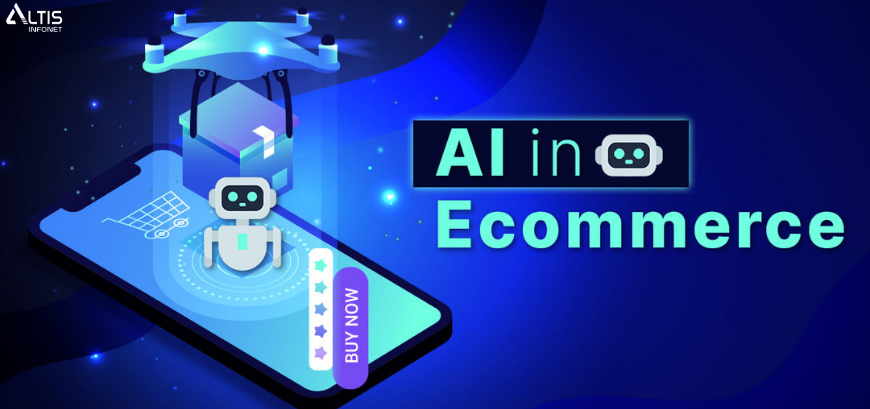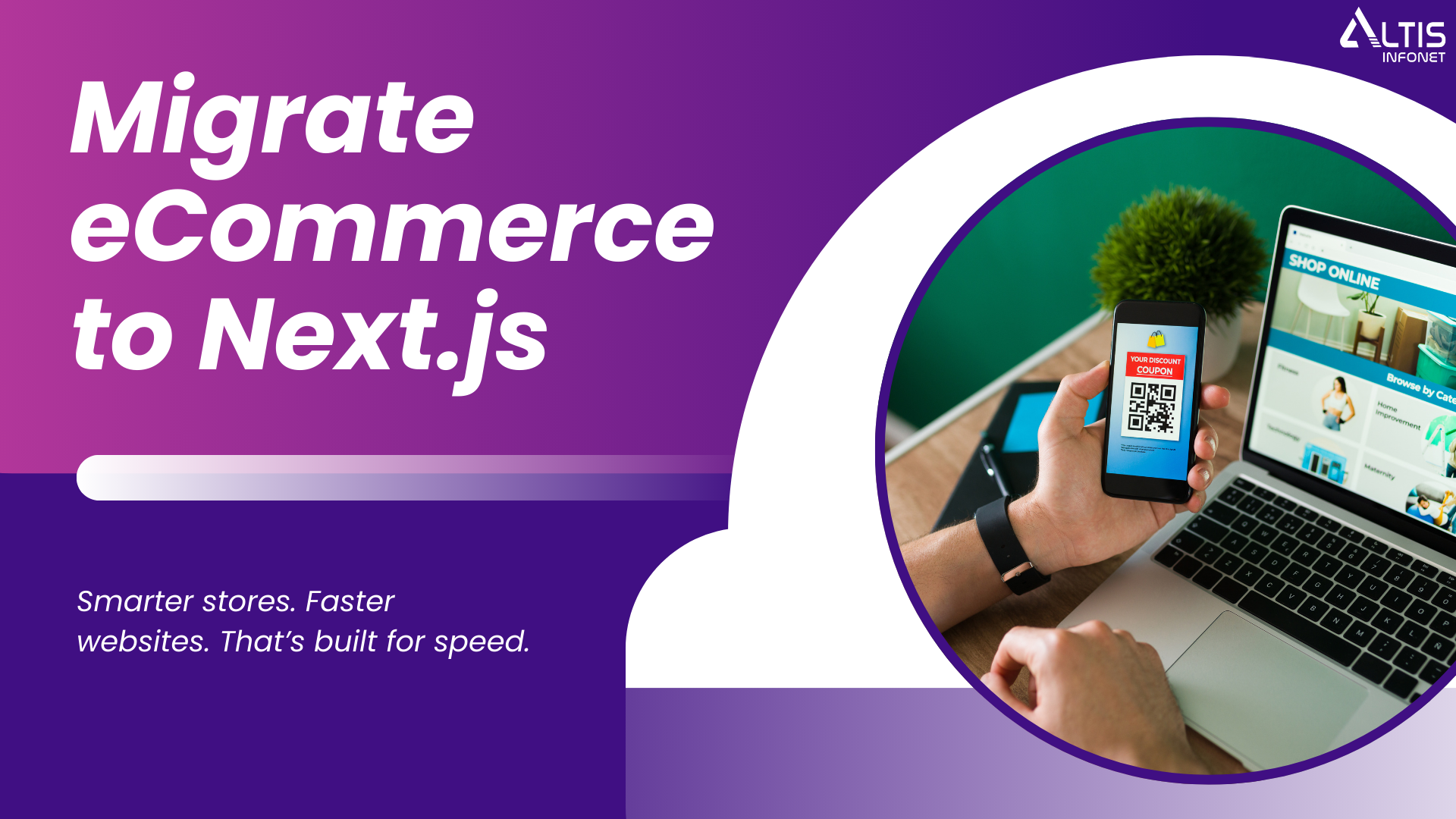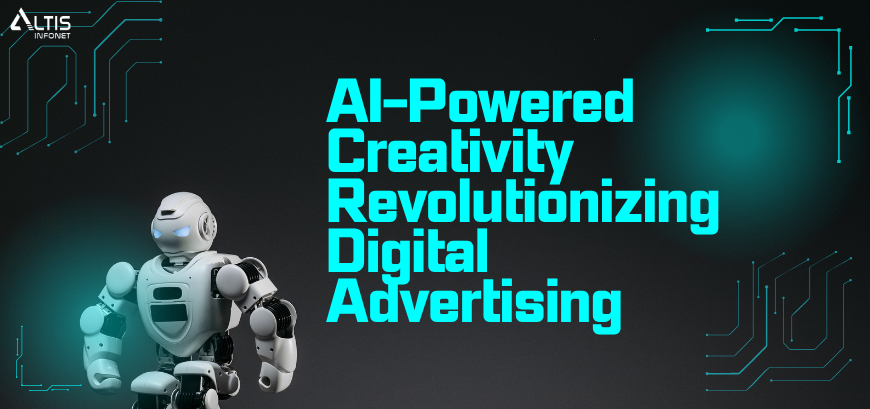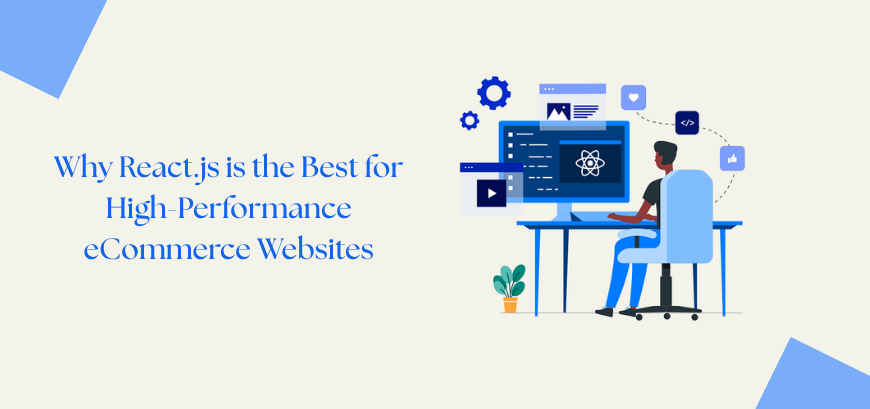The business landscape is transforming rapidly, with AI emerging as a game-changer—especially in e-commerce. According to McKinsey’s 2022 report, AI-powered supply chain planning in e-commerce has boosted revenue by up to 4%, reduced inventory by 20%, and cut supply chain costs by 10%.
For perspective, an e-commerce business earning $5 million annually could gain an extra $200,000 in revenue—simply by optimizing inventory with AI.
From personalized recommendations to automated customer support, AI enhances online shopping experiences. It enables dynamic content, instant query resolution, and smarter inventory management.
AI is also reshaping how developers create platforms. It’s no longer an add-on but a core component of modern website and application development services.
Let’s explore the real-world advantages and challenges of integrating AI into e-commerce website development. This will help you determine when and how to leverage AI effectively.
Understanding the Role of AI in eCommerce Development
AI isn’t magic—it’s a data-driven tool that enhances efficiency. Common applications include:
- Instant-response chatbots
- Personalized product suggestions
- Visual search capabilities
- Dynamic pricing based on market trends
- Voice-enabled shopping
- Sentiment analysis for customer feedback
- Automated product tagging and descriptions
However, AI isn’t plug-and-play. It requires strategic planning and robust infrastructure. Expert e-commerce website development services integrate AI from the ground up, ensuring seamless functionality rather than a last-minute addition.
Benefits of AI in E-Commerce Websites
When implemented thoughtfully, AI elevates user experience and operational efficiency. Here’s how:
Hyper-Personalized Shopping
AI tailors each visit by analyzing user behavior, leading to:
- Accurate product recommendations
- Customized promotions based on browsing history
- Adaptive product displays
This boosts engagement, encourages repeat visits, and increases conversion rates. Over time, AI refines its suggestions, delivering sharper personalization.
Intelligent Search & Navigation
A poorly functioning search bar drives users away. AI enhances search with:
- Real-time auto-suggestions
- Typo corrections
- Dynamic filtering
This streamlines the shopping journey, especially for multilingual or voice searches, improving accessibility.
24/7 Customer Support with Chatbots
AI-powered chatbots provide round-the-clock assistance for:
- Order tracking
- Product inquiries
- Basic issue resolution
They reduce operational costs, speed up response times, and free up human agents for complex queries. Advanced chatbots can also handle multilingual requests and escalate issues when needed.
Automated Email Campaigns
AI-driven follow-ups enhance engagement through:
- Abandoned cart reminders
- Restock alerts
- Targeted discounts
- Post-purchase feedback requests
This keeps customers engaged without manual effort.
Smarter Inventory & Order Management
AI mitigates stock challenges by:
- Predicting demand
- Automating reorders
- Aligning supply with trends
This minimizes overstocking and shortages, especially for multi-region stores. Professional web application development services ensure seamless integration with shipping and warehouse systems.
Fraud Prevention & Secure Payments
AI safeguards transactions by:
- Detecting unusual activity (e.g., rapid clicks from multiple devices)
- Flagging suspicious payment patterns
- Blocking known scam behaviors
This builds trust and protects revenue.
Challenges of AI in E-Commerce Development
Despite its advantages, AI presents hurdles:
High Implementation & Maintenance Costs
AI demands skilled developers, rigorous testing, and continuous updates. Small businesses may need to start with basic features before scaling. Additionally, AI tools require robust servers and storage, impacting hosting budgets.
Data Privacy Risks
AI relies on data, but mishandling it can:
- Violate privacy regulations
- Erode customer trust
- Harm brand reputation
Clear consent policies, encryption, and transparency are critical.
Limited Human Touch
While AI mimics human interaction, it lacks genuine empathy. Complex or emotional issues still require human support.
Technical Complexity
AI needs:
- Structured data
- Optimized backends
- High-performance servers
Partnering with an experienced e-commerce website development company ensures scalable, future-proof solutions.
Dependence on Data Quality
AI performs poorly with inconsistent or outdated data. Regular updates, duplicate removal, and real-time corrections are essential for accuracy.
When Should You Adopt AI in E-Commerce?
Consider AI if:
- Your sales are outpacing manual processes
- You want cost-efficient customer support
- Competitors are already using AI
- You aim to leverage customer data effectively
- You’re future-proofing your store
A phased rollout, guided by professional website development services, minimizes risk. Start with features like smart search or chatbots before expanding.
Build Smarter with Altis Infonet
AI transforms e-commerce by making stores more intuitive, efficient, and secure—but it requires expertise to implement correctly. At Altis Infonet, we blend technical prowess with business acumen to deliver tailored e-commerce website development services.
Whether you’re launching a new store or upgrading an existing one, our team ensures seamless AI integration. Let’s turn your vision into reality.





